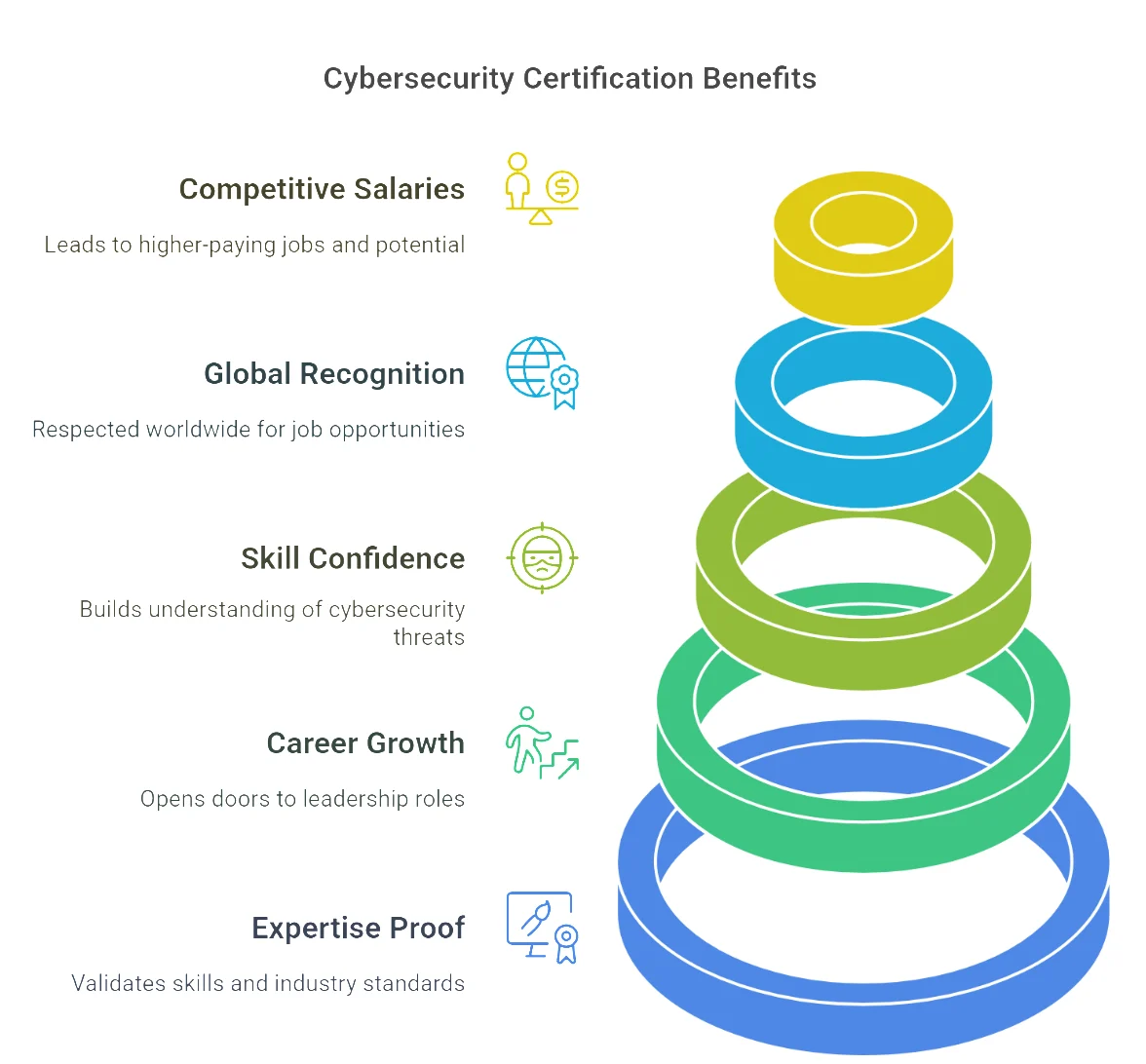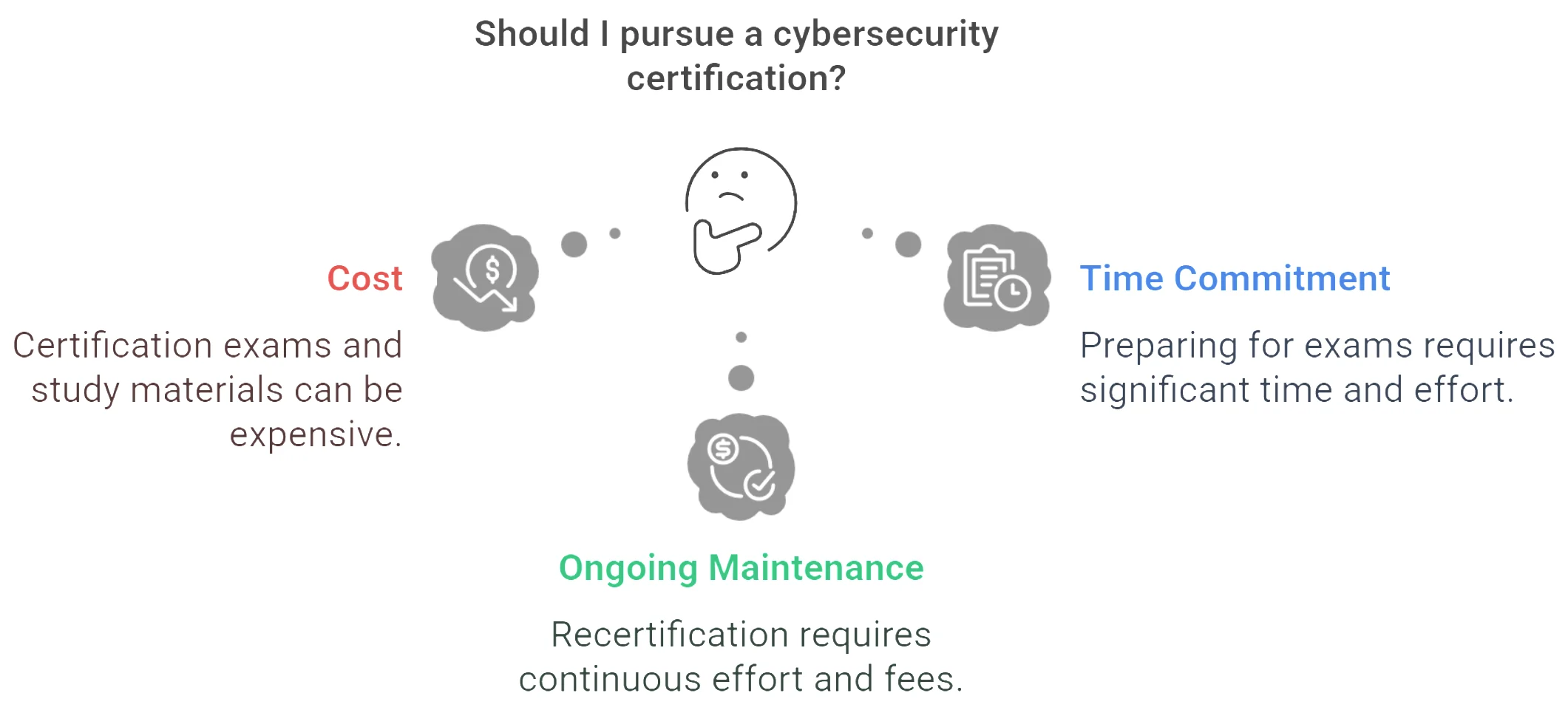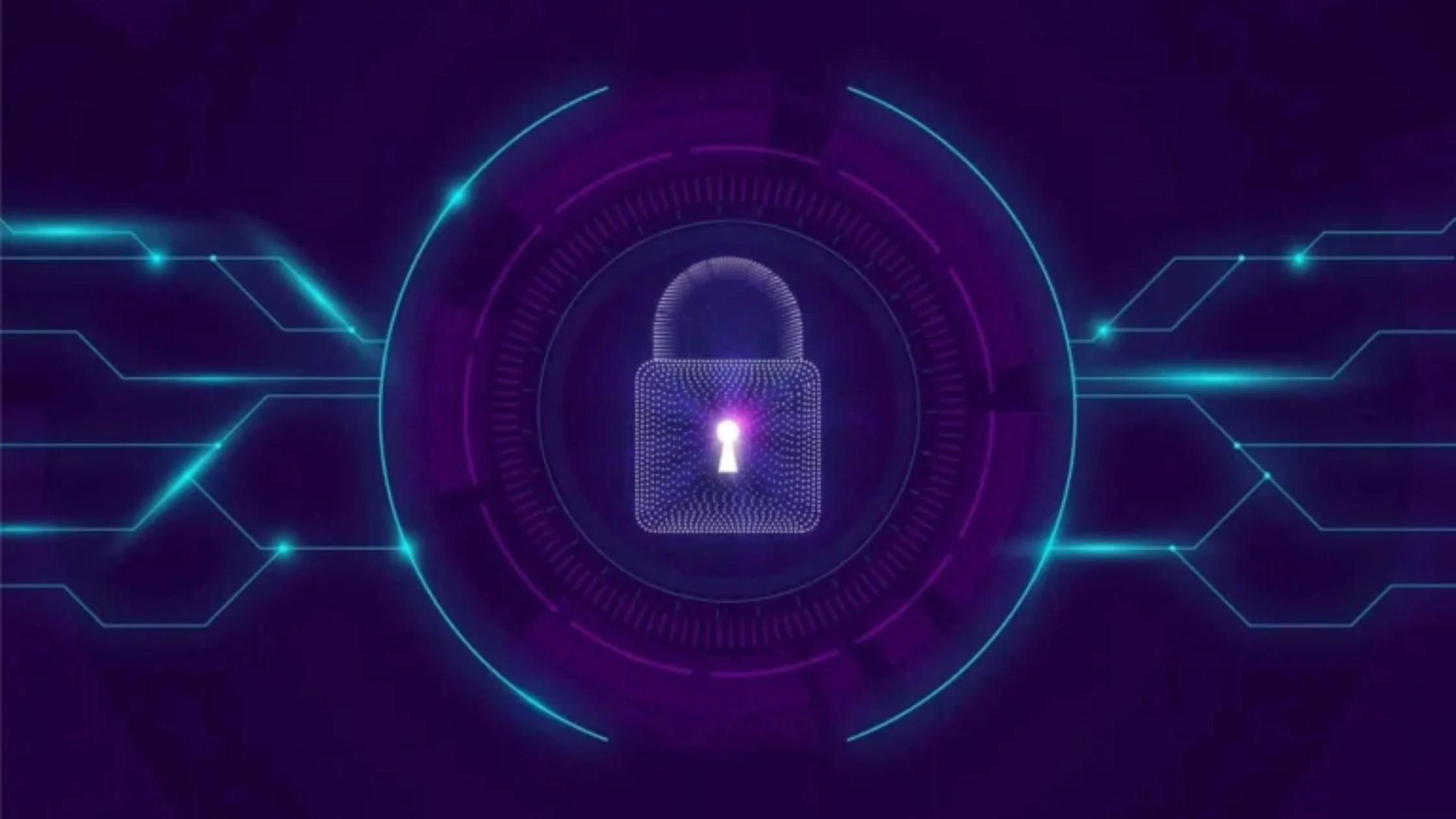Table of Contents
In the digital age, where cyber threats are becoming increasingly sophisticated, cybersecurity has become an essential pillar of business operations. Whether it’s protecting sensitive data from data breaches or defending against disruptive ransomware attacks, cybersecurity professionals play a pivotal role in securing our digital world. As the demand for cybersecurity expertise continues to rise, so does the need for qualified professionals who can keep pace with evolving threats.
But how can you demonstrate that you have the right skills and knowledge to handle the complex responsibilities involved in cybersecurity? This is where Cybersecurity Certification on Coursera becomes crucial. It acts as a proof of expertise in the field, showing potential employers that you are equipped to handle today’s cybersecurity challenges.
In this blog, we will explore what Cybersecurity Certification on Coursera is, why it matters, and how you can leverage it to advance your career in this dynamic field.
What is Cybersecurity Certification?
At its core, a cybersecurity certification is an official credential awarded to individuals who have demonstrated expertise in securing digital systems, networks, and data. The process involves completing a structured program of education or training, followed by an examination to validate your skills.
Cybersecurity certifications cover a broad range of competencies, from basic network security and incident response to more specialized areas like ethical hacking, cloud security, and forensic investigation. Organizations offering certifications, such as CompTIA, ISACA, and ACSMI, provide programs that range from introductory concepts to advanced topics.
The purpose of these certifications is to ensure that individuals possess the technical knowledge and practical experience required to secure sensitive systems and data from cyberattacks.
Why is Cybersecurity Certification Important?
Cybersecurity certifications have become increasingly critical as cyberattacks continue to escalate. Whether you are an entry-level IT professional or a seasoned expert, certifications validate your skills, enhance your credibility, and demonstrate your commitment to staying current in the field. Let’s dive deeper into why certifications matter:

1. Proof of Expertise
Certifications offer tangible evidence of your expertise. Employers are often faced with numerous candidates for a cybersecurity role, but the one who holds a recognized certification like CISSP, CompTIA Security+, or ACSMI Certification stands out. These credentials assure employers that you can identify vulnerabilities, mitigate risks, and implement security measures effectively. Certifications act as an industry-standard benchmark for validating your skills.
2. Career Growth
Cybersecurity certifications are essential for career advancement. Entry-level certifications such as CompTIA Security+ are stepping stones to more advanced certifications like CISSP or ACSMI, which can unlock leadership roles like CISO or Cybersecurity Architect. Achieving multiple certifications can also help you specialize in high-demand areas such as penetration testing, incident response, or cloud security.
3. Confidence in Skills
Training for certifications is not just about passing an exam—it’s about building confidence in your skills. Structured learning paths and real-world simulations help you gain a deeper understanding of cybersecurity threats and solutions. These practical exercises ensure that you are prepared to tackle sophisticated challenges once you are in the field.
4. Global Recognition
Cybersecurity certifications, particularly those from organizations like (ISC)², CompTIA, and ISACA, are globally recognized. Whether you’re looking for job opportunities in the United States, Australia, Europe, or Asia, these credentials are respected worldwide. As businesses expand globally, having an internationally recognized certification allows you to work anywhere.
5. Competitive Salaries
Get Cybersecurity Certification—Cybersecurity professionals with certifications are in high demand, and as a result, they command higher salaries compared to their non-certified counterparts. Certified professionals often have access to roles with starting salaries of $70,000 to $80,000 annually, with the potential to earn well over $200,000 in senior positions. Certifications can directly lead to higher-paying jobs and increased earning potential.
Types of Cybersecurity Certifications
Cybersecurity certifications vary in scope and level, catering to professionals at all stages of their careers. Below is an overview of the types of cybersecurity certifications that are commonly pursued:
1. Entry-Level Certifications
If you’re just starting in the cybersecurity field, entry-level certifications are a great place to begin. These certifications focus on foundational topics like network security, incident response, and risk management.
- CompTIA Security+: One of the most popular entry-level certifications, Security+ covers the basics of network security, cryptography, and threats.
- Certified Ethical Hacker (CEH) for Beginners: While CEH is often considered a mid-level certification, beginner programs of CEH are ideal for those starting their journey in ethical hacking.
- Certified Information Systems Security Professional (CISSP) Associate: CISSP is a comprehensive certification, but its associate version is suitable for those looking to start their career in information security.
2. Mid-Level Certifications
As you gain experience and knowledge, you can pursue mid-level certifications. These credentials focus on more specialized topics such as penetration testing, incident response, and cloud security.
- CompTIA CySA+ (Cybersecurity Analyst): This certification is geared toward professionals looking to enhance their skills in threat analysis and vulnerability management.
- Certified Ethical Hacker (CEH): This certification focuses on the practical aspects of penetration testing and ethical hacking.
- Certified Information Security Manager (CISM): This certification is designed for professionals focused on security governance, risk management, and incident response.
is designed for professionals focused on security governance, risk management, and incident response.
3. Advanced Certifications
Advanced certifications are suitable for experienced cybersecurity professionals looking to specialize in high-level topics and take on leadership roles.
- Certified Information Systems Security Professional (CISSP): One of the most respected certifications in the industry, CISSP covers a broad range of topics and is designed for senior-level professionals.
- Offensive Security Certified Professional (OSCP): Focused on penetration testing, OSCP is one of the most hands-on certifications available for ethical hackers.
- ACSMI Certification: ACSMI offers over 400 specialized modules, focusing on areas like cloud security, malware analysis, and forensics. This certification is perfect for individuals looking for deep expertise and leadership roles in cybersecurity.
Challenges of Earning Cybersecurity Certifications
While earning a cybersecurity certification can provide significant benefits, there are challenges to consider. These include:

1. Cost
The cost of certification exams can vary widely, ranging from $400 for entry-level certifications like CompTIA Security+ to $1,200 for advanced certifications like CISSP. Additionally, there are often costs associated with study materials, practice tests, and online courses.
2. Time Commitment
Preparing for a certification exam, especially an advanced one like CISSP or ACSMI, can take months of dedicated study. Depending on the certification, professionals may need to balance full-time work with study time, which can be demanding.
3. Ongoing Maintenance
Many certifications require recertification every 2 to 3 years, which means paying fees and possibly earning continuing education credits to maintain the certification.
Despite these challenges, cybersecurity certifications are a valuable investment in your career and can significantly enhance your marketability and earning potential.
How Much Does Cybersecurity Certification Cost?
The cost of earning a cybersecurity certification varies based on the level and provider. Here’s a general breakdown:
- Entry-Level Certifications: Typically cost $300 to $400 (e.g., CompTIA Security+).
- Specialized Programs: Certifications like Certified Ethical Hacker (CEH) may cost $1,199 or more, depending on the training package.
- Advanced Certifications: For senior roles, such as CISSP, the exam fee is around $749, excluding training costs.
- ACSMI Certification: Prices for ACSMI’s 400+ modules vary, but this program offers extensive value, combining comprehensive learning with hands-on labs for all skill levels.
Final Thoughts
Cybersecurity certifications are not just academic credentials—they are career accelerators. Whether you are just starting or looking to specialize in a particular cybersecurity field, the right certification can open doors to higher-paying roles, global opportunities, and professional growth.
From foundational certifications like CompTIA Security+ to advanced credentials like ACSMI certification, there are a wide range of options to suit various career goals. As the world becomes more digitally dependent, the demand for cybersecurity professionals will only continue to rise. Start your certification journey today, and prepare for a future filled with exciting and rewarding opportunities in cybersecurity.
Frequently Asked Questions About Cybersecurity Certification
1. What is cybersecurity certification?
Cybersecurity certification is a credential that validates your expertise in areas such as network security, incident response, and data protection.
2. Why do I need a cybersecurity certification?
Cybersecurity certifications validate your skills, enhance your career prospects, and increase earning potential. They also ensure that you are prepared to tackle complex cybersecurity challenges.
3. How much does a cybersecurity certification cost?
Entry-level certifications typically cost $300–$400, while advanced certifications like CISSP can cost around $749. The ACSMI certification varies in cost based on the specific modules selected.
4. What is the most recognized cybersecurity certification?
For beginners, CompTIA Security+ is widely recognized. For senior roles, CISSP and ACSMI certifications are considered the industry benchmarks.
5. How often do certifications require renewal?
Most certifications, such as CISSP, require renewal every 3 years. ACSMI also has maintenance requirements for keeping your skills current.

Leave a Reply